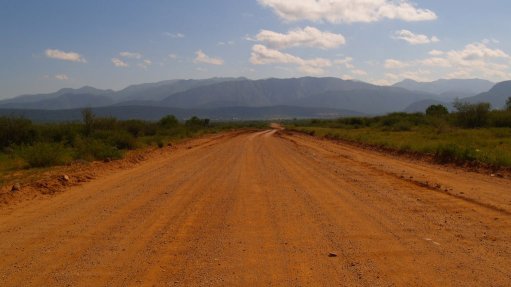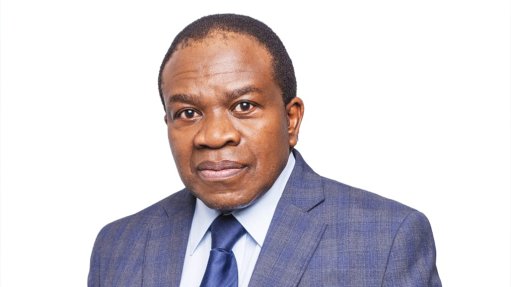South Africa avoids technical recession despite challenges – Deloitte
With unemployment, loadshedding and a weak economy being front-line issues in the upcoming elections, the incoming administration must drive investment and reform to restart growth, build confidence and help South Africa’s economy meet its potential, says advisory firm Deloitte.
In its May 2024 edition of its South Africa Economic Outlook, Deloitte notes that, despite recording the worst year of loadshedding so far in 2023, South Africa managed to avoid a technical recession, with real GDP growth at 0.6% last year.
In the first half of 2023, businesses and households invested in self-generation and rooftop solar power, boosting investment spending and aiding in overcoming energy shortfalls.
However, household final consumption expenditure growth has been flat, given the high cost of living and the country’s energy crisis.
“This, together with heightened operational challenges in rail and port infrastructure, has been a drag on investment and much-needed growth both on the demand and supply side,” the article notes.
Moreover, Deloitte says business sentiment has also been flat as companies face various challenges, including high costs of business, high lending rates, power and transport constraints, as well as policy and political uncertainty linked to the upcoming elections.
The firm points out that, in February, South Africa’s National Treasury forecasts in its budget review of 2024 that GDP growth will reach only 1.3% this year and 1.6% in 2025, noting that South Africa’s growth outlook comes in considerably lower than that of the global economy, which is projected to grow by 3.2% both this year and next.
For near- to medium-term growth, Deloitte says South Africa’s prospects remain constrained owing to subdued export prices, low demand, a weaker rand and the mentioned supply-side constraints to growth, together with high sovereign credit risks that increase borrowing costs and limit investment and growth.
High domestic interest rates also dampen consumption expenditure growth.
However, Deloitte posits that the domestic growth outlook may turn around and improve if loadshedding is reduced and rail and port infrastructure constraints are resolved, given the results of initial reforms in these sectors, and if cost-of-living pressures are reduced owing to moderating inflation and potential rate cuts toward the year’s latter half.
The firm also explains that South African consumers experienced a substantial increase in the cost of living during 2023, which resulted in decreased savings in lower- and middle-income groups as consumers spent most of their incomes on necessities.
“While headline inflation cooled down to 5.3% year-on-year in March, it has continued to trend between 5% and 6% since September 2023, proving to be sticky, stubbornly high, and increasingly driven by services inflation as well as food, fuel, and, more recently, electricity-price inflation,” it says.
Deloitte explains that consumers are expected to experience relief, as yearly average inflation is expected to drop further from 6% in 2023 to 5.1% in 2024, 4.6% in 2025, and 4.5% in 2026 as per the South African Reserve Bank’s (SARB’s) latest forecasts.
As major central banks, such as the US Federal Reserve, start their rate-cutting cycle, initial small rate cuts in South Africa are also likely, and could support increased household consumption, boosting growth and consumer confidence, it adds.
However, Deloitte notes that, while these rate cuts were until recently expected toward the end of the third quarter of this year in South Africa, the latest SARB Monetary Policy Review released in April cautioned that “the path back to the [inflation] target midpoint has risen in recent months” and that “markets now expect South Africa’s policy rate to remain unchanged this year".
Deloitte adds that consumer confidence will likely remain low, largely owing to high unemployment, but exacerbated by loadshedding and election uncertainty.
“In fact, top-of-mind issues for voters are unemployment, loadshedding, corruption and crime, which have all taken a toll on the country’s growth performance for years,” it says.
On the supply side of the economy, the firm posits that various plans that have been set in motion to address supply-side constraints will need to be executed.
“Although some argue that these reforms are not ambitious enough and that momentum has been slow, there has been some progress.”
Deloitte cites, for example, the recently passed Electricity Regulation Amendment Bill, which is aimed at reforming the country’s electricity sector, as well as promoting competition in the energy sector by unbundling State-owned power utility Eskom, ushering in a decentralised, modern, and low-carbon energy system in years to come.
Moreover, the National Logistics Crisis Committee was established in response to the crisis in the transport sector, and the Freight Logistics Roadmap was developed with immediate steps to improve equipment and locomotive availability, network security, and broader logistics systems reforms.
The immediate priority of the roadmap is to stabilise the operational performance of freight rail, which Deloitte says is currently a severe constraint, most notably for commodity exports.
Further, the Economic Regulation of Transport Bill is expected to be passed this year, promoting competition in the logistics industry and establishing the first transport regulator.
Cabinet also approved the Draft Rail Private Sector Participation Framework to provide an interim approach to enable private sector participation, including third-party access to the freight rail network.
While this is likely to be challenging based on previous attempts to include private operators in freight rail slots, Deloitte says private participation progress in ports has been seen, specifically at the Durban Container Terminal – Africa’s busiest container terminal.
State-owned Transnet, which operates the national rail and ports infrastructure, recently announced the conclusion of the financial due diligence of the preferred bidder that will upgrade and manage Durban’s Pier 2 terminal.
Moreover, a new management team was appointed at Transnet, which was coupled with the sector roadmap to improve finances and operations, which included the sale of non-core assets and partnering with international and local companies to assist in the operation of elements of the ports.
Linked to these developments, Deloitte notes that there has been increased emphasis by Treasury on efforts to professionalise public administration and improve governance of State-owned enterprises (SOEs), which should promote investment.
The firm explains that Treasury has pencilled in R943-billion for public infrastructure investment over the next three years, half of which is allocated to public investments in energy, transport and logistics.
By entity, 40% of the allocated R943-billion is expected to be invested by SOEs.
While reversing operational challenges and overall inefficiencies and maladministration of SOEs will take time, the need to reform and ultimately fix SOEs is great, says Deloitte.
“Much greater capital investment is required, not just through delivery by the public sector, but with the intent of public-private partnerships and crowding in private investment, which will also require improved business sentiment.”
Gross fixed capital formation continues to trend below 15% of GDP, which the firm says is well below the 30% targeted in the National Development Plan.
“Treasury is taking the lack of growth, slow reforms of SOEs – included in conditions for accessing bailout funding – and the pressured financial position of the country seriously.”
Deloitte adds that debt sustainability and debt service costs are a “case in point.”
“The 2024 Budget noted that, since 2012, real GDP growth has averaged 0.8% a year and high debt service costs are choking economic growth by taking away spending from growth-enhancing sectors.”
For example, debt service costs are a greater share of the budget till fiscal 2026/27 than allocations made for social protection, health, community development, or economic development, with one in every R5 being spent on servicing debt.
Deloitte says the February 2024 Budget acknowledged the high budget deficit as a share of GDP, and introduced measures and reforms toward achieving a primary budget surplus, while also reducing borrowing in the medium term by drawing down R150-billion rand from the valuation gains of the SARB’s Gold and Foreign Exchange Reserves Account.
The account is currently valued at about R500-billion, with the proposed effective “withdrawal” being R250-billion, with R100-billion to be put aside as a contingency fund.
Deloitte says tapping into these funds will help stabilise the government’s debt-to-GDP ratio in fiscal 2025/26 at a lower share of GDP – 75.3% versus 77.7% as anticipated previously in the 2023 Medium-Term Budget Policy Statement.
“Indeed, the 2023/24 fiscal year was the first since 2008/09 that a primary budget surplus was recorded, showing the National Treasury’s commitment to reducing the country’s debt burden.”
Moreover, the budget deficit as a share of GDP is expected to narrow to 3.3% in the 2026/27 fiscal year.
To ensure that the change in government spending is sustainable, the firm argues that the long-term path will require a binding fiscal anchor to ensure spending stays within projected debt levels, and with lower debt servicing costs creating space for spending on more productive and growth-enhancing activities.
“Given some of the constraints under discussion, but also stemming from various uncertainties such as heightened geopolitical tensions in the Middle East, climate change risks, still-tight financing conditions, and South Africa’s upcoming elections on May 29, there are notable downside risks to growth.
That said, addressing energy and infrastructure challenges, together with easing inflation and a commensurate lower interest rate environment post the incoming administration – hopefully one that implements reforms and works toward fixing what is broken – will help unlock confidence and South Africa’s economic potential. But a lot of hard work still lies ahead,” Deloitte says.
Article Enquiry
Email Article
Save Article
Feedback
To advertise email advertising@creamermedia.co.za or click here
Press Office
Announcements
What's On
Subscribe to improve your user experience...
Option 1 (equivalent of R125 a month):
Receive a weekly copy of Creamer Media's Engineering News & Mining Weekly magazine
(print copy for those in South Africa and e-magazine for those outside of South Africa)
Receive daily email newsletters
Access to full search results
Access archive of magazine back copies
Access to Projects in Progress
Access to ONE Research Report of your choice in PDF format
Option 2 (equivalent of R375 a month):
All benefits from Option 1
PLUS
Access to Creamer Media's Research Channel Africa for ALL Research Reports, in PDF format, on various industrial and mining sectors
including Electricity; Water; Energy Transition; Hydrogen; Roads, Rail and Ports; Coal; Gold; Platinum; Battery Metals; etc.
Already a subscriber?
Forgotten your password?
Receive weekly copy of Creamer Media's Engineering News & Mining Weekly magazine (print copy for those in South Africa and e-magazine for those outside of South Africa)
➕
Recieve daily email newsletters
➕
Access to full search results
➕
Access archive of magazine back copies
➕
Access to Projects in Progress
➕
Access to ONE Research Report of your choice in PDF format
RESEARCH CHANNEL AFRICA
R4500 (equivalent of R375 a month)
SUBSCRIBEAll benefits from Option 1
➕
Access to Creamer Media's Research Channel Africa for ALL Research Reports on various industrial and mining sectors, in PDF format, including on:
Electricity
➕
Water
➕
Energy Transition
➕
Hydrogen
➕
Roads, Rail and Ports
➕
Coal
➕
Gold
➕
Platinum
➕
Battery Metals
➕
etc.
Receive all benefits from Option 1 or Option 2 delivered to numerous people at your company
➕
Multiple User names and Passwords for simultaneous log-ins
➕
Intranet integration access to all in your organisation


















